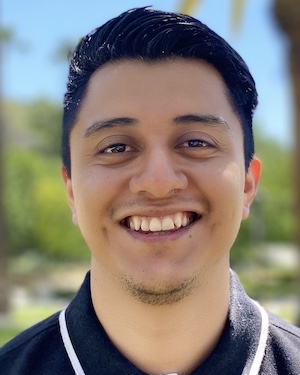Meaningful Occupations and Routine Changes During Quarantine

July 1, 2020
by Daniel
During the COVID-19 pandemic many of us have lost our normal routines and had to either adapt or stop engaging in certain daily occupations. Occupations are activities that we need to do, want to do, or are expected to do in our everyday lives. Everyone has a different definition for what a meaningful occupation is, for example, going to school, working, taking walks, interacting in the community, etc. Social distancing has changed the way we work, socialize, and how we take care of ourselves. Right now, more than ever, occupational therapy plays a crucial role in guiding patients through the process of creating and/or adjusting habits and routines that are personally meaningful and health promoting. Occupational therapy has the ability to address the physical, mental, and spiritual wellbeing of individuals.
During my remote fieldwork at the LAC+USC Adult West clinic, I have had many conversations regarding increased levels of fear, anxiety, anger, and depression. These are completely normal feelings to have during a time of so much uncertainty. People are worried about their health, financial responsibilities, food insecurity, their loved ones, social injustice, etc. Furthermore, the inability to engage in their usual daily occupations has taken a toll on many of the patients at the clinic. Yet, it is important that we do not let these feelings control our lives, and instead, find healthy ways to cope with these feelings and find ways to begin to engage in meaningful occupations. For example, many people are worried about not being able to work which leads to stress and anxiety about how they will provide for their families the longer this continues. To many this is an extreme change in their lives and are not able to engage in what they have considered a meaningful occupation (working) for the last 10-20 years. Often, our phone visits will focus on exploring coping strategies to manage stress or anxiety, and connecting them to resources that may support them with basic necessities. Without the ability to take care of their basic needs, patients have difficulty focusing on managing their health. Furthermore, we support patients by finding ways to increase activity level and engage in safe/appropriate socialization.
Below are some resources that you can use with your future patients and for yourself:
Patient Resources:
- My Therapist Aid: A tool for mental health professionals that includes worksheets, audio, videos, guides, interactive activities, and products. Resources can be searched by topic to tailor activities to client’s needs (i.e. stress, anger, anxiety, depression, grief, self-esteem, relaxation, substance abuse, etc.).
- Mindful USC: free app with guided meditations, as well as information about mindfulness classes, retreats and events in the community.
- UCLA Guided Meditations: different types of free meditations in English and Spanish, that can be played as audio or read using a transcript. The meditations can also be accessed via the “UCLA Mindful” app for free.
- YouTube meditations: YouTube is a great resource for many of our patients because it is free and it has so many options! Patients can explore different types of meditations such as guided meditations, sleep meditations, meditations with music, etc.
- Deep Breathing: a relaxation technique that focuses on taking slow deep breaths to provide relief from stress and anxiety. This reminds you to breathe, bring that heart rate down, and relax your muscles.
- 211LA: A hub for community members and community organizations looking for all types of health, human, and social services in Los Angeles County.
Personal Coping Strategies:
- Music/Lo-Fi Music: Music has always been a coping strategy for stress and anxiety for many years. More recently, I really enjoyed simply playing lo-fi music, which is a type of music that is mostly beats.
- Exercise: Strengthening exercises and running have been one of my biggest coping strategies during moments of stress. Since gyms began to close, I had to re-invent the way that I exercised at home. I started to do more bodyweight exercises and lots of stretching!
- Reading: I know this probably sound exhausting because we usually already have so much to read for school or work! However, I have found it therapeutic to spend at least 20 minutes per day reading books I have genuine interest for and does not feel like more work. A strategy I have been implementing is setting a timer for 20 minutes to read every day.
As I reflect back on the first 7 weeks of fieldwork, I have learned a lot from hearing patients’ personal experiences under these life-changing circumstances. This has been a challenge as I try to support them through a computer monitor and phone. However, this experience has also improved my problem solving, communication, and collaboration skills as the clinic team finds ways to better support patients. This experience has served as a reminder that occupational therapy provides the adequate training to help with challenges that occur when a person is confined to home and is unable to engage in their meaningful occupations.
⋯
Next by tag Fieldwork ⟩ Life Hacks ⟩
⋯





